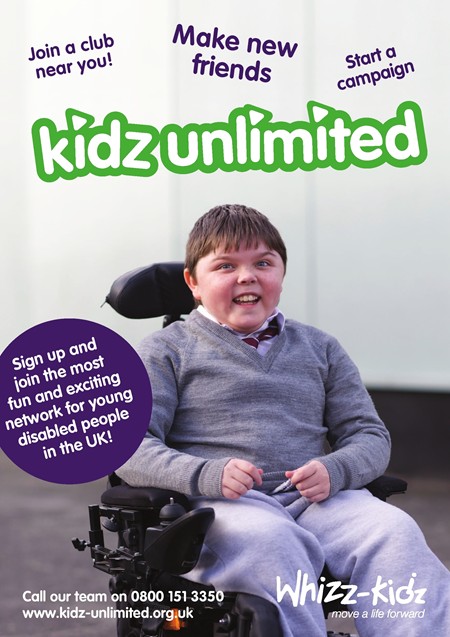
Well MI Study

Welcome to the Well MI project website
Study title
Wellbeing, health and fitness of children with mobility impairments (Well MI); Scoping and development of individually tailored child-centred ‘keep-fit’ interventions
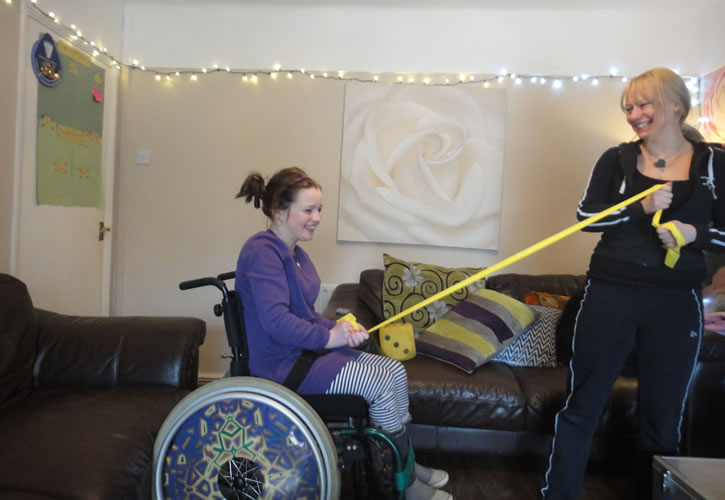
Mother and daughter having fun exercising at home
Recruitment for the Well mi study has now finished. We would like to thank all the children, young people and families who took part in the Well mi study.
List of collaborators
Principal Investigator: Dr Thomas D. O’Brien
Co-Principal Investigator: Professor Jane Noyes
Research Officer: Dr Llinos Haf Spencer
Research Technician: Mr Matthew Jackson
Other Co-applicants:
- Professor Rhiannon Tudor Edwards
- Professor Richard Patrick Hastings
- Dr Hans-Peter Kubis
- Rhiannon Whitaker
Project Partners
- Richard Jones, Contact a Family
- Amanda Hopkin, Whizz-Kidz
- Carol McCudden, North Wales Wheelchair Service
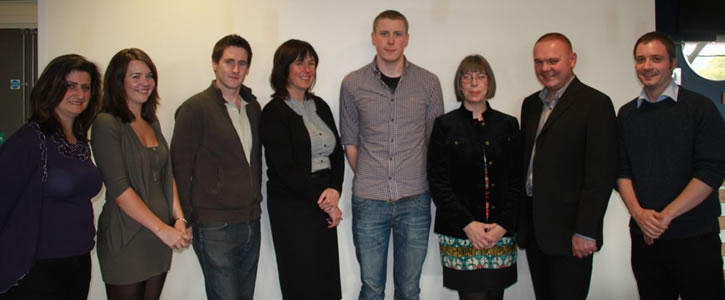
Some of the members from the ‘Children and young people with disabilities and their families, health and wellbeing research group’, Bangor University.
In the photo from left to right: Dr Sonia Khoury, Liz Halstead, Dr Thomas O’Brien, Julie Sutton, Nathan Bray, Sally Rees, Professor Richard Hastings, Aaron Pritchard.
Photo taken at the Believe in Better Square table event 4th October 2012 at Millennium Stadium, Cardiff.
Well MI Study summary:
Children with mobility impairments typically have low activity levels and are more likely to be obese and develop type-2 diabetes and cardiovascular disease in later life. Consequently, wellbeing is reduced and demand on health and social care services increases. Developing interventions to target health and fitness would significantly improve wellbeing and independence, and imbed healthy life-styles for adulthood. Long term benefits would likely include mental health and social interaction, as well as physical health.
Presently, little is known about the health and fitness of children with mobility impairments. The proposed study will establish children's perspectives and needs to develop individually tailored, child-centred and fun keep fit interventions to improve the wellbeing, health and fitness of children with mobility impairments.
Interviews will be used to identify important outcomes for children with mobility impairments and their families, develop assessment methods and explore preferences for exercise, e.g. motivation, location, duration, individual/group, music. Baseline data will then be collected and individual/condition-specific cases will be examined to develop fun child-centred activities. Each stage of this work will be advised and guided by information and feedback from children with mobility impairments and their parents and carers.
At completion, a protocol for a pilot trial to test individually-tailored interventions and assess cost-effectiveness, will be designed.
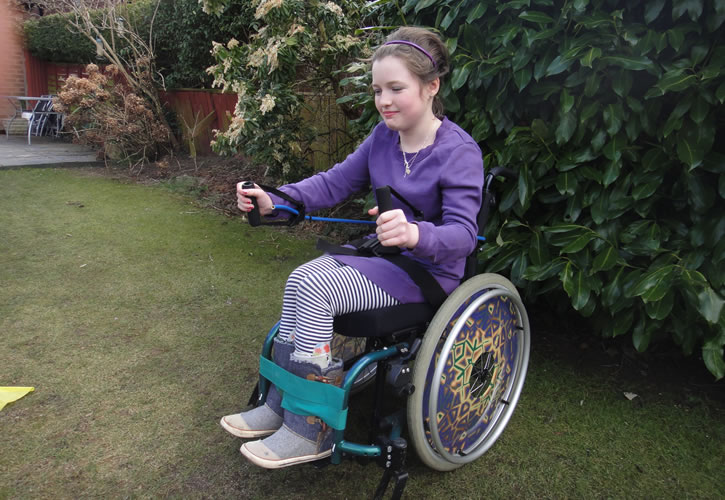
Girl exercising in the garden


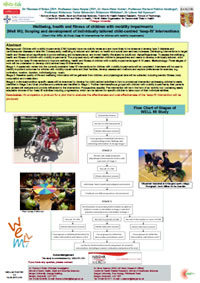 Download Well MI Poster
Download Well MI Poster
